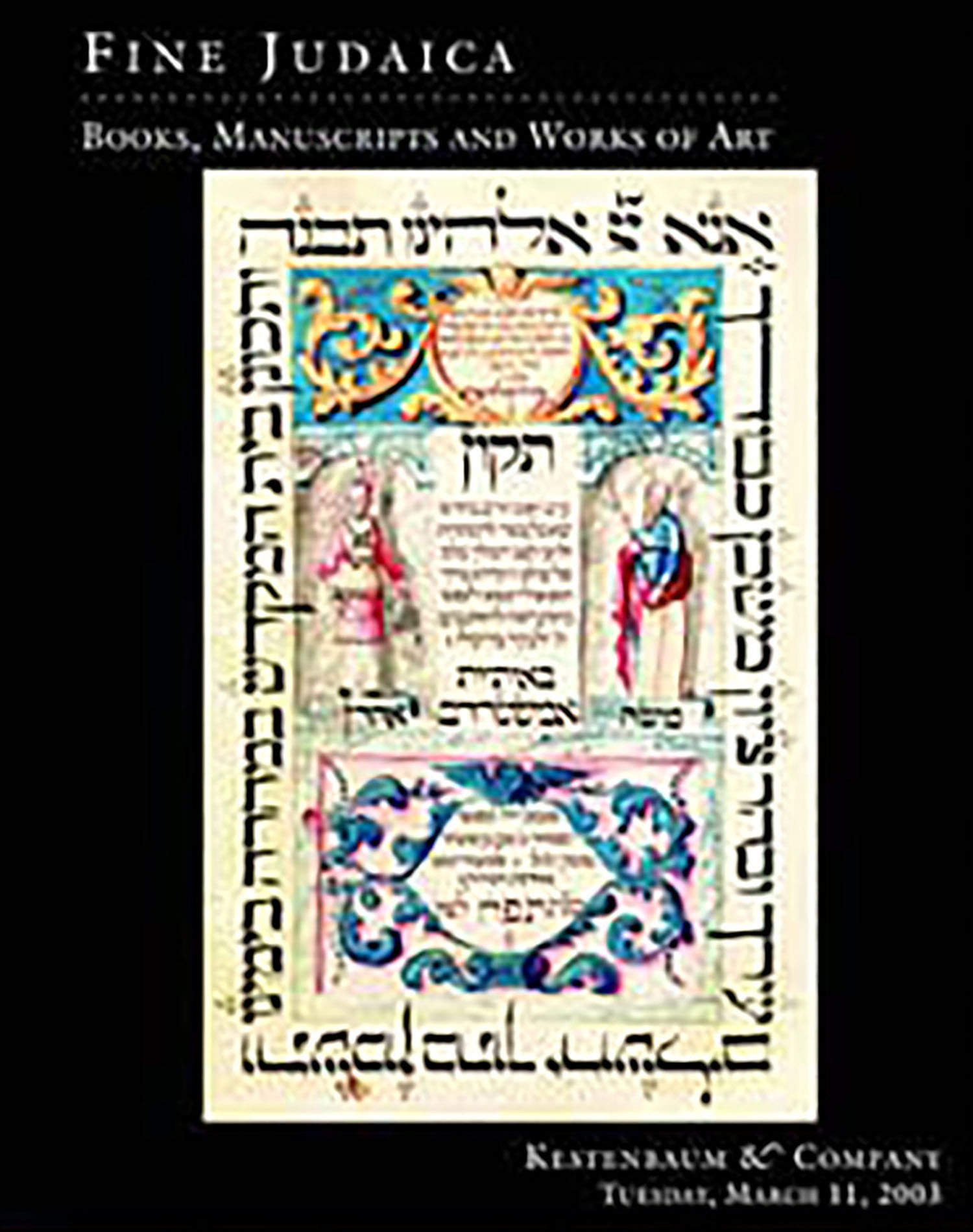(FRENCH JUDAICA)

AUCTION 19 |
Tuesday, March 11th,
2003 at 1:00
Fine Judaica: Printed Books, Manuscripts and Works of Graphic Art
Lot 82
(FRENCH JUDAICA)
v.p.: v.d.
Est: $1,500 - $2,000
The Consistoire Central des Israelites was formed by Napoleon I as a means of organizing the Jewish Religion. The Consistoire comprised committees of notables from each region of the Empire and the Kingdom of Italy, with a central body in Paris. The authority had responsibilities for the supervision and administration of synagogues and the Rabbinate within the Empire, including the training, appointment and remuneration of rabbis. According to Schwarzfuchs; “The proposed regulations fitted completely into the Napoleonic political scheme: the Jewish religion was not so much organized as controlled. Its centralized organization, the need to obtain official recognition for any appointment and any taxation, the de facto suppression of democratic procedures with all the powers handed over to appointed bodies, all this very well expressed the Emperor’s political philosophy. Judaism had to be centralized in order to be kept under supervision.” See: S. Scharzfuchs, Napoleon, the Jews and the Sanhedrin (1979) pp. 104-6
